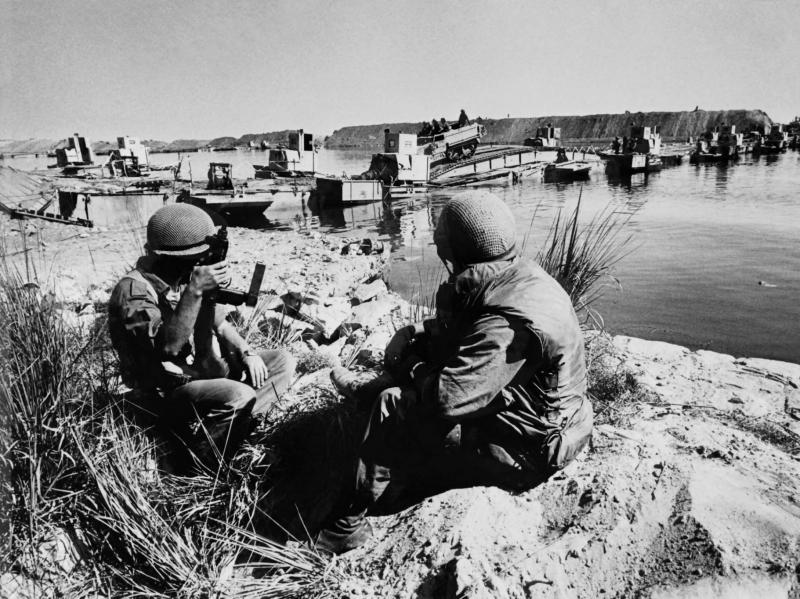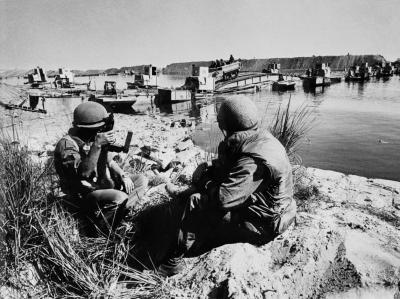Israel commemorates the 50th anniversary of the 1973 war that brought it to the brink of catastrophic defeat, yet the unity that helped it survive during wartime seems a distant memory for a generation increasingly marked by divisions. The war began with a surprise attack on two fronts by waves of Syrian tanks and Egyptian brigades, catching Israeli forces off guard at the start of Yom Kippur, the holiest day in the Jewish calendar. Due to the unpreparedness of the Israeli army and many soldiers being on leave, Israeli forces initially retreated before regaining control and confronting their enemies in a series of decisive engagements in the Golan Heights to the north and in the Sinai Desert to the south. Ozi Zweibner, 69, who rushed to fight Egyptian forces early in the war after having recently trained to drive tanks before being injured, stated, "There was horrific fear, but we had faith that we would eventually overcome them... we had to."
In conjunction with the 50th anniversary, numerous editorial pieces in newspapers, television documentaries, and journalistic investigations have criticized then-Prime Minister Golda Meir and her government for their failure to prepare for the war. Several Israeli leaders who participated in the war in their youth, including current Prime Minister Benjamin Netanyahu and former Prime Minister Ehud Barak, reflect on that time. However, feelings of unity have steadily diminished in the face of growing polarization regarding internal societal movements in Israel, which has been evident this year in the heated battle over Netanyahu's plans to modify the judicial system.
This issue has revealed deep divisions between Netanyahu's supporters, mainly religious and nationalistic segments, and the more liberal and secular sectors of Israeli society, raising fundamental questions about the constitutional foundations of Israel and its future directions. Hundreds of thousands have taken to the streets for weeks in protests against the judicial changes, which the government claims are necessary to curb liberal judges meddling in political affairs, while critics view the changes as an attack on the democratic foundations of the state of Israel. Amid the protests, a significant number of reservists announced they would abstain from military service, causing concern within the military establishment about potential risks to national security.
Israeli Chief of Staff Herzi Halevi stated in a speech last month during the anniversary of the 1973 war, "The ability to manage dissent is one of the traits of a healthy society, but dissent followed by deepening polarization and division in Israeli society is dangerous." Although the war itself evoked an immediate sense of national unity at the time, a significant portion of Israelis also felt a deep shock that Israel was left vulnerable, fighting for its survival while Syrian and Egyptian tanks flowed onto the battlefield.
A few years after the 1967 war, in which Israeli forces defeated their Arab neighbors in less than a week and seized the territories that Palestinians now seek for their state, the human losses and lack of readiness in the 1973 war have led to mutual accusations that persist to this day. Israeli forces, aided by American airlifts of supplies and equipment, engaged in combat with Syrian and Egyptian formations that outnumbered them and were supported by the Soviet Union, before a United Nations-brokered ceasefire halted the fighting after about three weeks.
More than 2,600 Israelis were killed, including Zweibner's brother, making it the largest loss of life Israel has ever suffered in a single war. On the other hand, precise figures for Egyptian and Syrian casualties are unavailable, but estimates suggest approximately 15,000 Egyptians and 3,500 Syrians were killed. Five years after the war, Israel signed a peace agreement with Egypt, its first with an Arab state, followed by an agreement with Jordan in 1994. In 2020, relations advanced with two Gulf states under the Abraham Accords.
For many soldiers who were on the front lines, the war remains a shocking event, but after five decades, many feel proud to have helped save Israel. Zweibner commented, "I met with my friends this week, which really stirred my emotions, but you feel like you saved Israel's existence." Zweibner, who opposes the judicial amendments, believes the lesson of the 1973 war is that people should be ready to think for themselves instead of blindly accepting what leaders say, regardless of their ranks. He added, "I think it's ultimately good that leaders don't believe that everything they do is taken for granted and that they are allowed to do anything."




